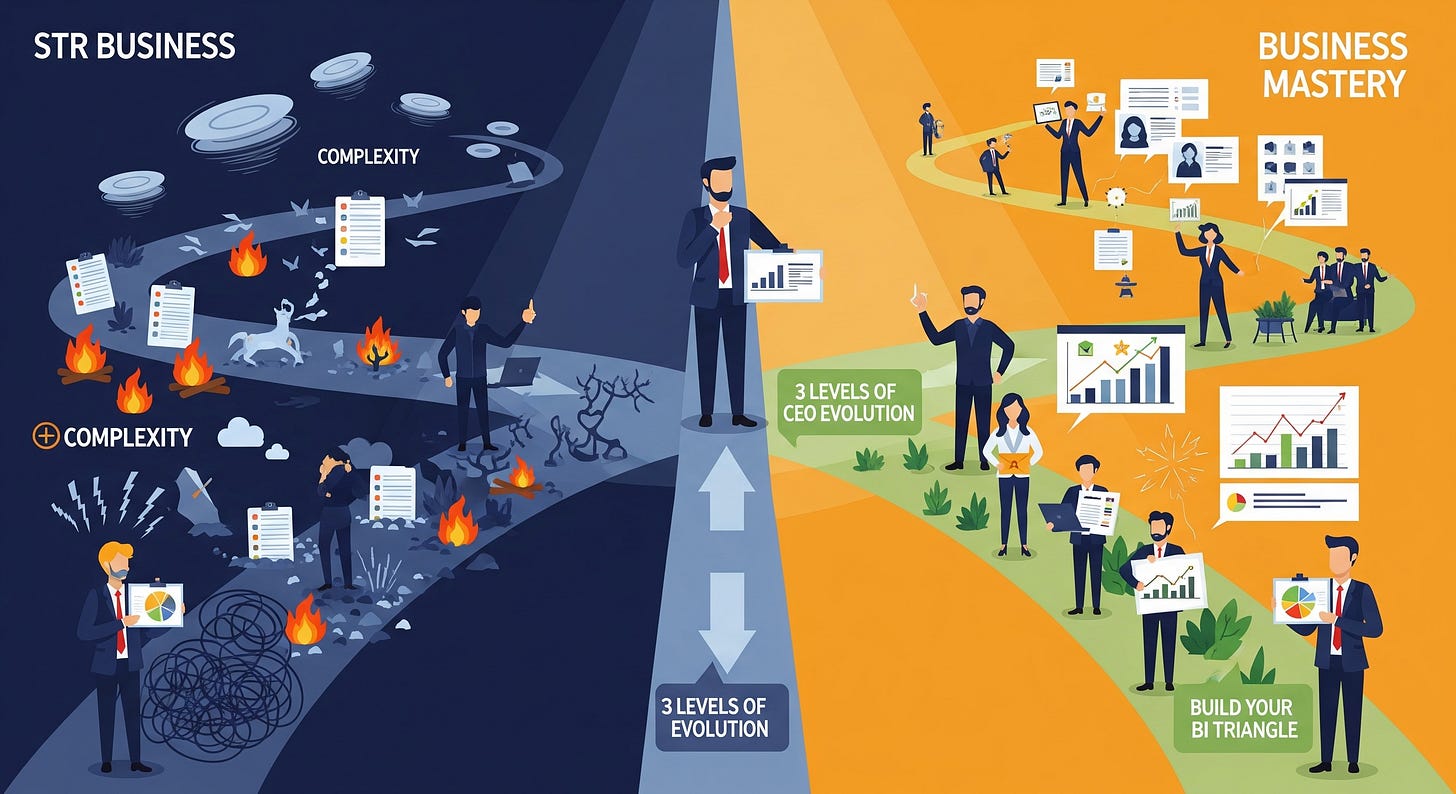Your 'Systems' Are Why You Can't Take a Vacation: The $50K Opportunity Cost of Playing Business Owner
Most STR operators think checking messages poolside counts as 'automated business management.' Here's why that mentality is costing you six figures annually.
Picture this: You're sitting on a beach in Maui, watching the sunset paint the Pacific in gold, and your phone buzzes. It's another "urgent" guest message about checkout procedures you've explained 847 times. You handle it in sixty seconds while your family waits, then justify it as "good customer service."
Wrong.
What you just did was prove you don't own a business—you own a sophisticated job that follows you everywhere.
Recent studies show that while 57% of small business owners take vacations, 67% check work messages daily during their time off. STR operators are worse: industry research indicates most work 14-20 hours weekly during "normal" periods and up to 40 hours during peak seasons.
Here's the brutal math: If you're checking work while on vacation, you're not taking a vacation—you're working from expensive locations. That "week off" just cost you $50,000 in opportunity cost, and I'll prove it.
The Three Levels of CEO: From Chaos to Freedom
Most STR operators get trapped because they don't understand the evolution required to build a true business. There are three distinct levels of CEO development, and where you are determines whether you can actually take that vacation:
Level 1: Chief Everything Officer
This is where everyone starts. You're the reservation manager, customer service department, maintenance coordinator, marketing team, and financial analyst. You tell yourself this is "learning the business," but what you're really doing is building an unsustainable dependence on your personal involvement.
The smartphone becomes your electronic leash. You've digitized your job, not automated your business.
Level 2: Chief Executive Officer
This is the scaling phase where you learn delegation and team building. You start hiring cleaners, maybe a virtual assistant, possibly a property manager. You implement better software and create some standard operating procedures.
But here's the trap: You delegate tasks without delegating decision-making authority. Your team can execute, but they can't think. Every exception, every unusual situation, every "what should I do?" still routes back to you.
"The goal of delegation is not just to get things off your plate, it's to develop others and multiply your impact. Too many leaders delegate tasks but retain authority, creating a bottleneck that destroys the efficiency they were trying to create." - Michael Hyatt
Level 3: Chief Empowerment Officer
This is true business ownership. You've built people who build your business. Your team doesn't just execute your decisions—they make owner-level decisions using the frameworks and principles you've established. The business runs not because you're managing it, but because you've built a culture and system that operates independently.
This is where the six-month vacation test becomes possible.
Why Your Current 'Systems' Are Sophisticated Traps
The problem isn't that STR operators don't have systems—it's that they have the wrong kind of systems. They've built what I call "digital dependency" rather than true automation.
Research on business automation shows that 30-50% of automation projects fail because they automate processes without addressing the underlying decision-making bottlenecks. In STR, this shows up as:
Digital Delegation (Level 1 Systems):
Automated messages that still require your review
Property management software you check constantly
Cleaning crews that text you photos for approval
Guest communication that escalates to you for "special" situations
Premium Systematization (Level 2 Systems):
Standard operating procedures your team follows
Decision trees for common situations
Performance metrics and quality controls
Regular training and process improvement
But even Level 2 systems fail the vacation test because they rely on your judgment, your availability, your problem-solving ability.
The BI Triangle: Building True Business Ownership
Here's the framework that creates Level 3 operations—what is called the BI Triangle:




